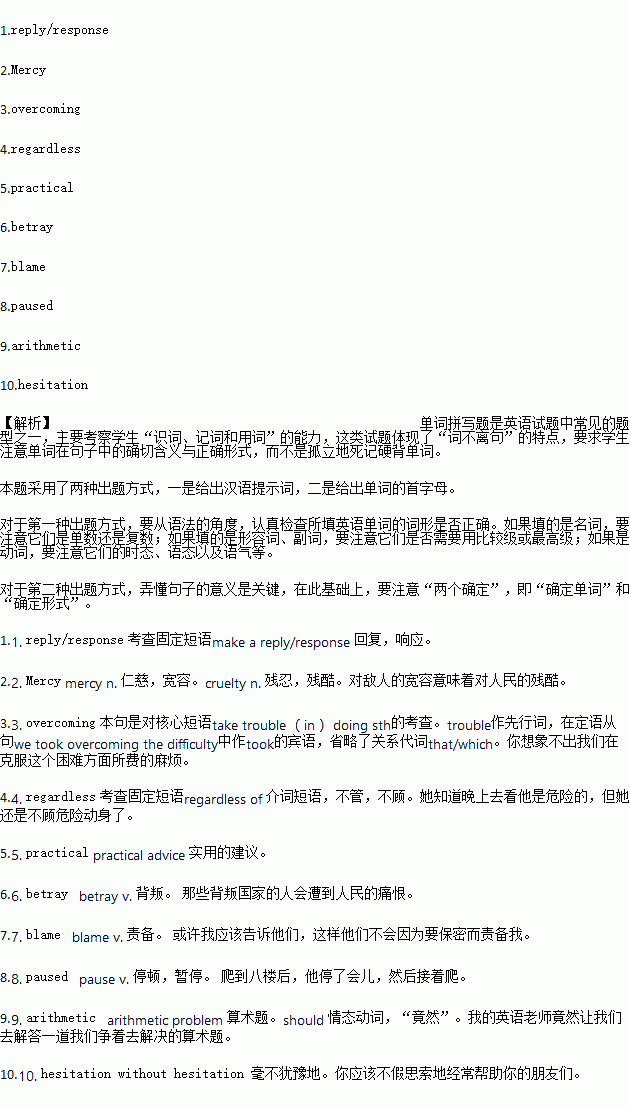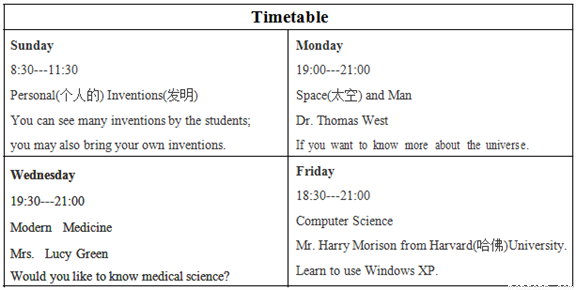题目内容
1.I invited her to dinner but she made no r____________ to my invitation..
2.M__________ to the enemies means cruelty to the people.
3.You can’t imagine the trouble we took _________(克服) the difficulty.
4.She knew it’s dangerous to visit him at night, but she set out r_____________ of the risk.
5.You can listen to Teen Talk. They will offer you some ____________(实际的,实用的) advice.
6.Those who b______ their countries will be hated by all the people.
7.Maybe I should tell them , so they won’t b_________ me for keeping a secret.
8.After getting to the 8th floor, he p______ for a while and then continued climbing.
9.My English teacher should ask us to answer an a______________(算术) problem that we would race to work out in our heads.
10.You should always help your friends without h____________.
 天天向上一本好卷系列答案
天天向上一本好卷系列答案 小学生10分钟应用题系列答案
小学生10分钟应用题系列答案

 ars older than the youngest one.
ars older than the youngest one.